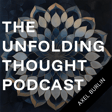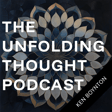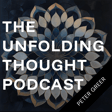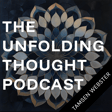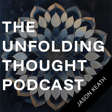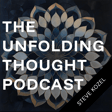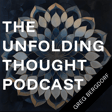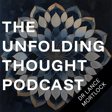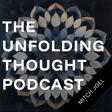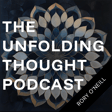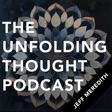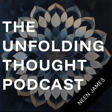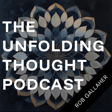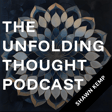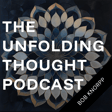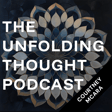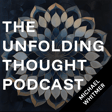
Martin Bihl: This Playground Brought to You by Miller Brewing Company
In this episode of The Unfolding Thought Podcast, Eric Pratum speaks with Martin Bihl — writer, strategist, podcaster, and self-described “recovering ad man.” Known for his sharp wit and reflective takes on marketing, media, and the human condition, Martin challenges conventional thinking about creativity, capitalism, and the culture of business.
The conversation explores how advertising both reflects and shapes our shared values — from branded playgrounds to the myth of the “creative genius.” Martin shares his experience navigating agency life, why he created The Agency Review to critique the industry from within, and how his contrarian curiosity fuels his writing and podcast You’re On Mute.
Together, they discuss the interplay between thinking and doing, why “strategy” has become theater, and what we might learn by viewing business less as a machine and more as a story — one that tells us who we are and what we believe.
Topics Explored
- Why marketing isn’t just persuasion — it’s identity construction
- How capitalism commodifies attention, meaning, and play
- The myth of the “creative” and the illusion of originality
- Why the line between art, commerce, and morality keeps blurring
- The difference between thinking strategically and theatrically
- How irony and sincerity coexist in modern branding
- The role of critique — and why we need more of it inside the industry
Links
- Connect with Martin on LinkedIn: https://www.linkedin.com/in/martinbihl/
- Visit Martin’s website: https://www.martinbihl.com
- The Agency Review: https://the-agency-review.com
- Martin’s article on thinking and doing: https://www.martinbihl.com/business-thinking/i-think-i-can-alternative-business-strategy
- McDonald’s milkshake story by Clayton Christensen: https://www.youtube.com/watch?v=sXYm-CVzPQ0
- You’re On Mute podcast: https://www.martinbihl.com/youreonmutethepodcast
For More Episodes
Visit: https://unfoldingthought.com
Questions or guest ideas: eric@inboundandagile.com
